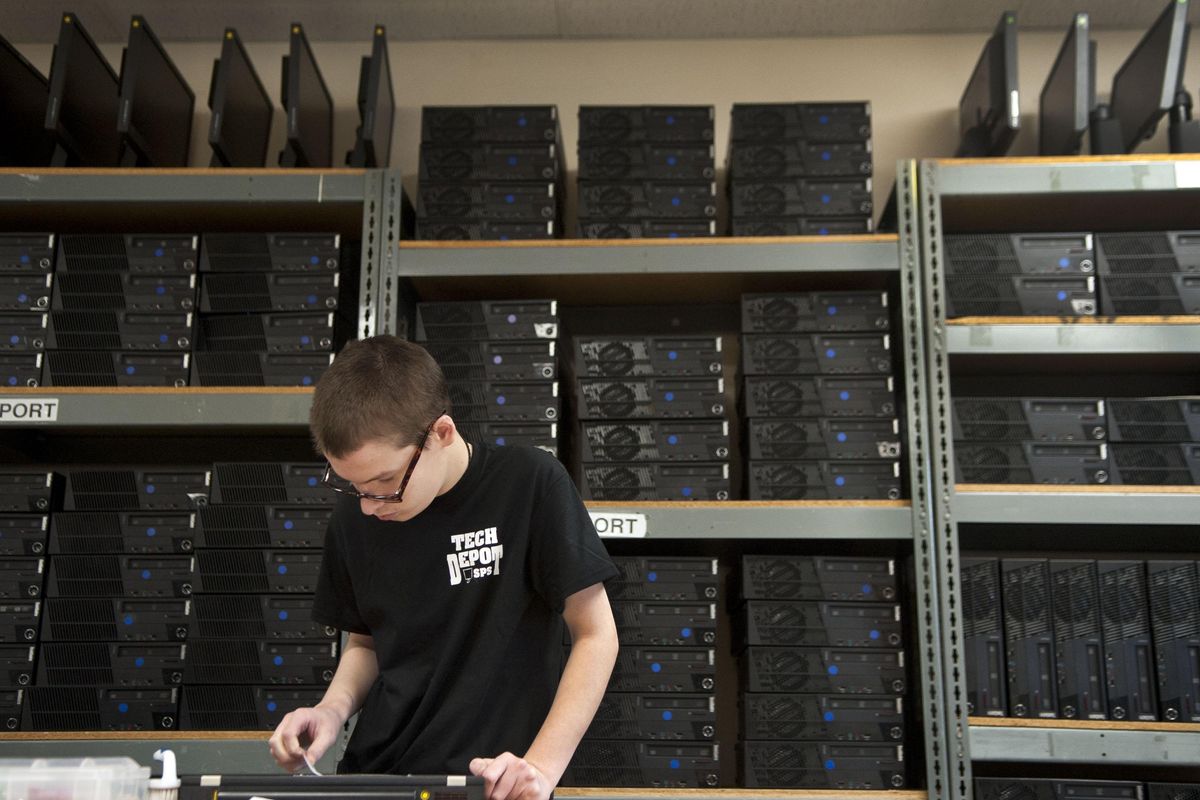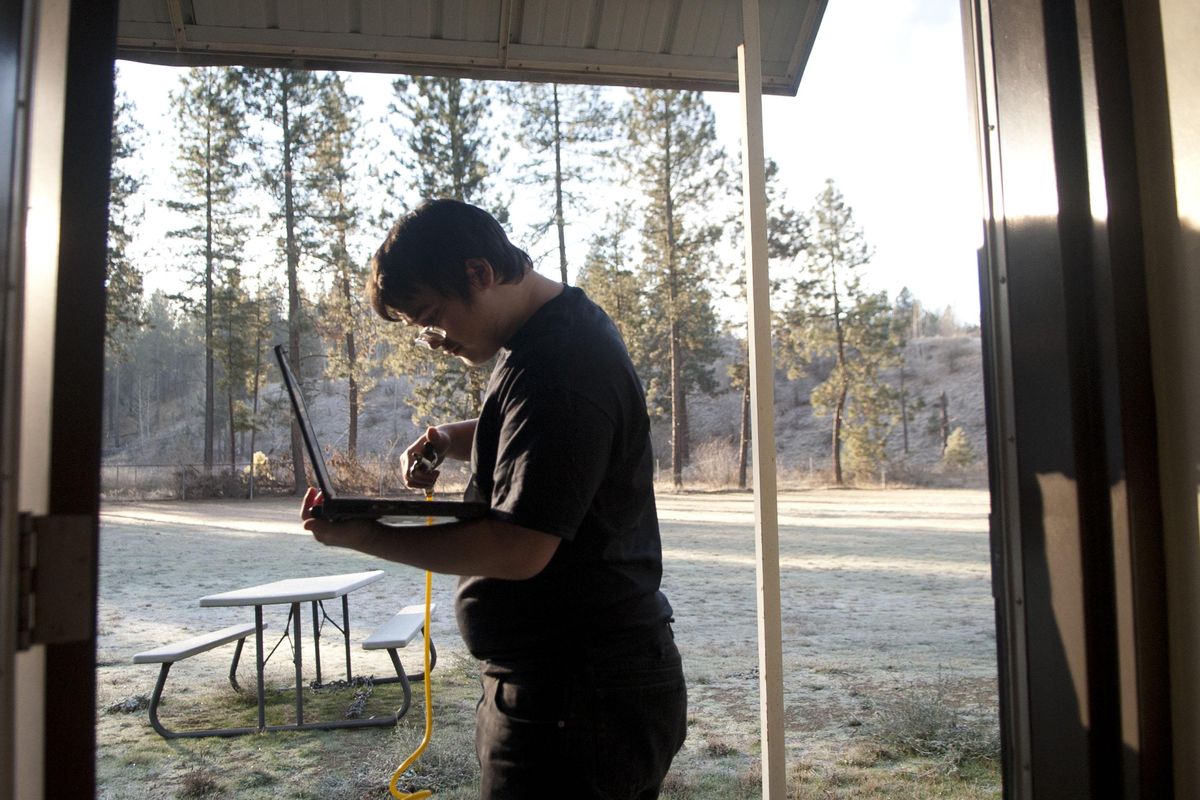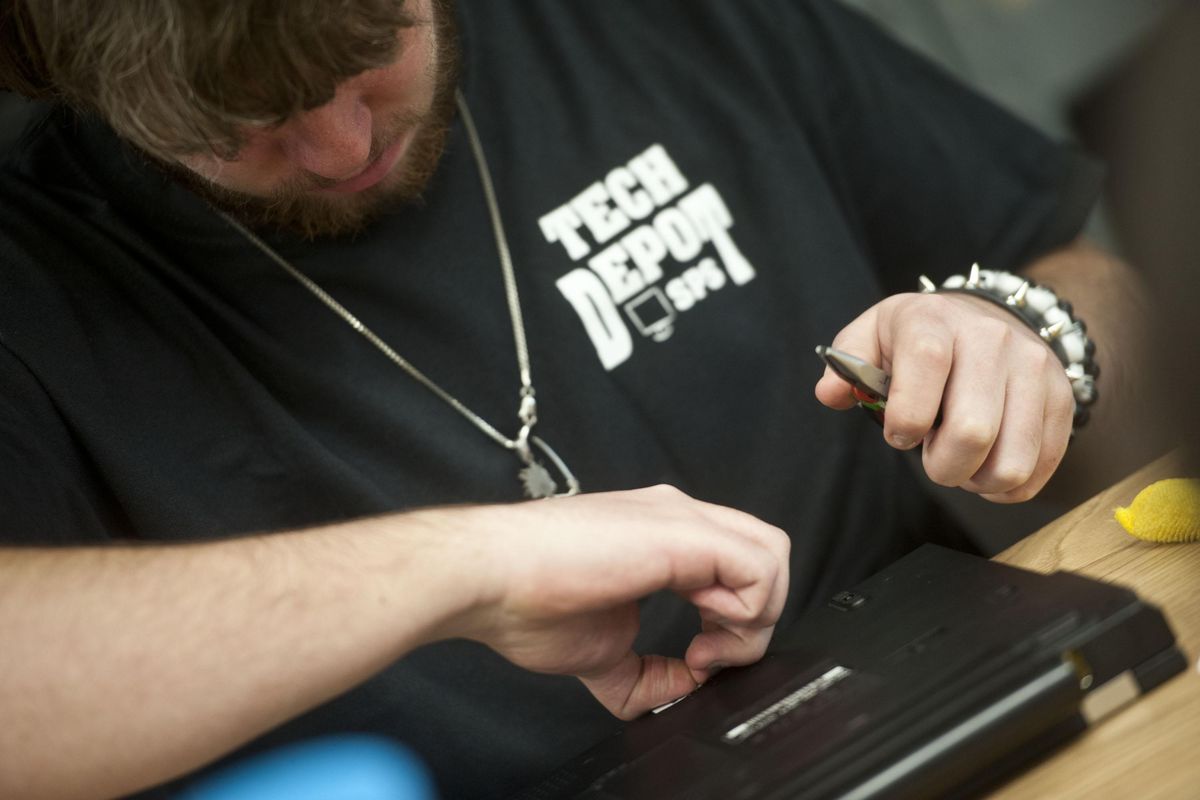Library laptops for students taking hold: Lending refurbished computers has goal of ‘digital equity’
John Schwertfeger uses canned air to clean out a laptop at Instructional Tech Support in Spokane Valley on Friday, Dec. 7, 2018. Spokane Public Schools has a program in which used laptops are refurbished and donated to Spokane Public Libraries for students to check out. (Kathy Plonka / The Spokesman-Review)Buy a print of this photo
Spokane Public Schools and the Spokane Public Library are partnering to offer refurbished laptop computers that SPS students can check out from their local library.
The program is in its infancy, with only 26 laptops checked out to Rogers High School students from the Hillyard Library so far, but more computers, more schools and more libraries are set to come online in the coming months.
The two entities began partnering last year with a fine-free library card for all Spokane Public Schools students and staff, said library director of marketing and communication Amanda Donovan.
“We don’t want to create barriers for anyone who wants to access these materials,” she said. “We’re looking for ways we can deepen that partnership.”
Voters approved bonds for both organizations this year that will see some libraries and schools located next to each other on the same property, so it makes sense to have that partnership, Donovan said.
The Rogers High School pilot project started in November and has gone well, said SPS director of technology and information Scott Kerwien. “It was great,” he said.
The school district replaces its computers every four years and the old ones are being refurbished to give them new life. “In the past we were allowed to sell them for $25 to Excelsior Youth Center,” he said.
Now students at the Tech Depot put each laptop through the official Microsoft refurbishing process, gaining computer skills along the way. Those computers are then funneled into the library lending program. It takes about three weeks to produce 20 laptops for lending, so the rollout will be slow.
“As more and more classes require access to technology, we want to make sure we have that capacity,” Kerwien said. “We’re definitely in the early stages of this.”
For now, the program will be geared toward high school students, but Kerwien said parents of students in other grades are already expressing interest in the program. “When parents are hearing about it, parents are positive about it,” he said. “There’s a strong interest and outcry to speed this up a little.”
When students are given a laptop, they attend an information session at the library. They’re taught how to use the computers, shown how to download Microsoft 360 and encouraged to use the library as their tech support if they have issues.
Community Technology director Tara Neumann said some of the students she met at the first session didn’t have access to a computer at home.
“The focus is on digital equity and getting those resources to students who really need them,” she said. “Access is still a very high need in Spokane.”
The library also handed out some Wi-Fi hot spots provided by the Sprint 1 Million Project that are designed to provide free internet to students who need it. The data usage on the hot spots is limited, so students are encouraged to use free Wi-Fi at the libraries and other locations when they can, Neumann said.
All the public libraries offer free computers for the public, including students, but they are often busy. “We do have peak times,” Donovan said. “It is one of our most popular resources.”
Some of the details of the laptop lending program are still being ironed out, such as how long the students can keep the computers and what to do if one isn’t returned.
“We’ve kind of discussed it back and forth about that,” Kerwien said. “We’re thinking they can keep it for the school year.”
Providing laptops to students doesn’t just help them with their homework, it helps prepare them for the digital world we live in, Donovan said.
“This is setting them up for long-term success, not just the day to day in high school,” she said.



